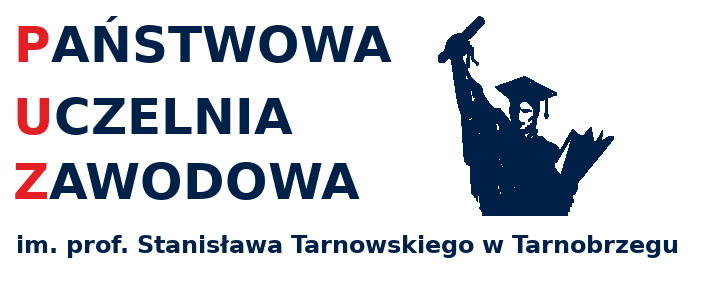Nursing
The first-degree nursing studies conclude with a diploma exam consisting of both theoretical and practical parts, encompassing the verification of learning outcomes covered by the study program. The diploma thesis is prepared by the student based on an analysis of an individual case. Second-degree nursing studies culminate in a diploma exam that verifies the achieved learning outcomes outlined in the study program. The diploma exam consists of both a written and an oral component.
Detailed rules and conditions for the graduation process in the field of NURSING (both first and second degree) are provided in the attached documents. We encourage you to familiarize yourself with their content.

Psychology

Integrated Master's Studies
The diploma examination is an oral exam. It includes defending the master's thesis and questions related to the subject of the thesis. The exam consists of three questions – the first one concerns the master's thesis (topic and purpose of the thesis, results, conclusions). The other two questions verify the directional learning outcomes - two randomly selected questions from the scope of the studied field.
Diploma examination rules for the psychology integrated master's studies – a collection of documents:
Internal Security

Diploma examination is an oral examination. It includes the defense of the diploma thesis and issues within the scope of the diploma subject. The examination consists of three questions – the first one concerns the diploma thesis (topic and purpose of the thesis, results, conclusions). The remaining two are questions verifying the direction-specific learning outcomes - two randomly selected questions from the scope of the studied field.
Diploma Examination Regulations for the first degree – collection of documents:
· Diploma Examination Regulations for the internal security field of the first degree
· Questions for the diploma examination for the internal security field of the first degree
· Student statements
· Anti-plagiarism regulations
Diploma examination for second-degree studies in the field of Internal Security is an oral examination. It includes the defense of the diploma thesis and issues within the scope of the diploma subject. The examination consists of three questions – the first one concerns the diploma thesis (topic and purpose of the thesis, results, conclusions). The remaining two are questions verifying the direction-specific learning outcomes - two randomly selected questions from the scope of the studied field.
Diploma Examination Regulations for the second degree – collection of documents:
· Diploma Examination Regulations for the internal security field of the second degree
· Questions for the diploma examination for the internal security field of the second degree
· Student statements
· Anti-plagiarism regulations
Finance and Accounting

Diploma examination for first-degree studies in the field of Finance and Accounting is an oral examination. It includes the defense of the diploma thesis and issues within the scope of the diploma subject. The examination consists of three questions – the first one concerns the diploma thesis (topic and purpose of the thesis, results, conclusions). The remaining two are questions verifying the direction-specific learning outcomes - two randomly selected questions from the scope of the studied field.
Diploma Examination Regulations for the first degree – collection of documents:
· Diploma Examination Regulations for the Finance and Accounting field of the first degree
· Questions for the diploma examination for the Finance and Accounting field of the first degree
· Student statements
· Anti-plagiarism regulations
Manageial Economics

Diploma examination for first-degree studies in the field of Managerial Economics is an oral examination. It includes the defense of the diploma thesis and issues within the scope of the diploma subject. The examination consists of three questions – the first one concerns the diploma thesis (topic and purpose of the thesis, results, conclusions). The remaining two are questions verifying the direction-specific learning outcomes - two randomly selected questions from the scope of the studied field.
Diploma Examination Regulations for the first degree – collection of documents:
· Diploma Examination Regulations for the Managerial Economics field of the first degree
· Questions for the diploma examination for the Managerial Economics field of the first degree
· Student statements
· Anti-plagiarism regulations
Diploma examination for second-degree studies in the field of Managerial Economics is an oral examination. It includes the defense of the diploma thesis and issues within the scope of the diploma subject. The examination consists of three questions – the first one concerns the diploma thesis (topic and purpose of the thesis, results, conclusions). The remaining two are questions verifying the direction-specific learning outcomes - two randomly selected questions from the scope of the studied field.
Diploma Examination Regulations for the second degree – collection of documents:
· Diploma Examination Regulations for the Managerial Economics field of the second degree
· Questions for the diploma examination for the Managerial Economics field of the second degree
· Student statements
· Anti-plagiarism regulations
Państwowa Uczelnia Zawodowa
im. prof. Stanisława Tarnowskiego w Tarnobrzegu
ul. Henryka Sienkiewicza 50, 39-400 Tarnobrzeg
tel. 15 822 90 15
lub 15 822 90 23
fax. 15 823 57 88
Ze względu na wejście w życie w dniu 25 maja 2018 roku Rozporządzenia Parlamentu Europejskiego i Rady (UE) 2016/679 z dnia 27 kwietnia 2016 r. w sprawie ochrony osób fizycznych w związku z przetwarzaniem danych osobowych i w sprawie swobodnego przepływu takich danych oraz uchylenia dyrektywy 95/46/WE (ogólne rozporządzenie o ochronie danych, dalej zwane jako „RODO"), kierując się potrzebą jak najlepszej ochrony Państwa praw wynikających z nowych przepisów, informujemy, iż wprowadziliśmy nową Politykę prywatności, regulującą zasady przetwarzania danych osobowych po dniu 25 maja 2018 roku.
Wprowadzone zmiany mają na celu przede wszystkim podniesienie standardów obsługi oraz bezpieczeństwa przetwarzania Państwa danych osobowych. W nowej wersji Polityki prywatności uszczegółowiliśmy w związku z tym zasady przetwarzania powierzanych nam danych osobowych, dostosowując w ten sposób dotychczasowe rozwiązania do wymogów RODO.
Pełna treść nowej Polityki prywatności dostępna jest tutaj
Nowe dokumenty i procedury obowiązywać będą od dnia 25 maja 2018 roku.
Niezależnie od powyższego, celem realizacji obowiązku informacyjnego wynikającego z art. 13 RODO, przekazujemy Państwu informację nt. podstaw przetwarzania Państwa danych osobowych, tego kto jest administratorem Państwa danych, w jakich celach są one przetwarzane.
Treść klauzuli informacyjnej jest dostępna tutaj
W razie pytań zachęcamy do kontaktu.


